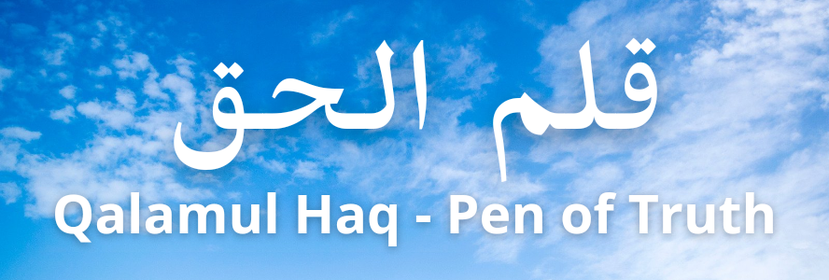- Details
- Hits: 3850
From the Horse’s Mouth
‘Amr bin ‘Aas (radhiyallahu ‘anhu) narrates the following:
An army of the Muslims, over whom I was appointed as leader, once set out to fight in the path of Allah Ta‘ala. We continued to travel until we came to the city of Alexandria. On reaching Alexandria, the leader of the city announced to us, “Send someone from your army to me so that I may converse with him.” When I heard this request, I immediately said, “Nobody but I will go to him.” I thus emerged from the camp and went to meet him. With me was a translator, and the city leader had a translator with him as well. Two pulpits were placed for us and we thus sat. The following dialogue then ensued:
Leader of Alexandria: Who are you people?
‘Amr bin ‘Aas (radhiyallahu ‘anhu): We are the Arabs. We are the people of thorns and acacia trees. We are the people of the Ka’bah. We are the people who had the smallest land and most difficult lives. We would consume carrion and some of us would attack and fight with others. We were living the most despicable lives that people could possibly live. This continued to be our plight until a man emerged from among us who was neither the most influential at that time and was neither the wealthiest. He said, “I am the messenger of Allah (sallallahu ‘alaihi wasallam).” He then began to prohibit us from the acts that we were perpetrating and which we found our forefathers perpetrating. Hence, we resented him, belied him and rejected his message, until another group of people, besides us, came to him. They said to him, “We believe in you, we will follow you and we will fight whoever fights against you.” He thus left Makkah Mukarramah and migrated to them, and we went after him. We thus fought against him, resulting in him killing us, defeating us and overpowering us. The other Arabs in the nearby areas also rose against him, so he fought against them until he conquered them.
When the leader of Alexandria heard this, he began to laugh. He thereafter said:
Leader of Alexandria: Indeed, your messenger spoke the truth. Our messengers also came to us with messages similar to that which your messenger brought to you. We adhered firmly to their message and their teachings, until kings emerged among us. These kings would do as they pleased and they abandoned the teachings of the messengers. If you hold fast to the teachings of your Nabi, nobody will wage war against you except that you will defeat him, and nobody will rise against you except that you will overpower him. However, as soon as you do as we did, by abandoning the teachings of your Nabi, and you behave as we did by obeying your desires, then we will be left to each other (i.e. you will not enjoy the divine assistance of Allah Ta‘ala). In that case, you are neither greater than us in number and neither are you stronger and more powerful than we are.
‘Amr bin ‘Aas (radhiyallahu ‘anhu) later remarked, “I never spoke to a man (from the disbelievers) as intelligent as him.” (Majma‘uz Zawaa’id #10383)
Lessons:
1. When the leader requested to engage in discussion with a Muslim, ‘Amr bin ‘Aas (radhiyallahu ‘anhu) ensured that he personally went to him. The most probable reason for this was that the person who met this leader and conversed with him would, in reality, be representing Islam. His conduct, speech and the mindset that he portrayed would be construed as being the values and way of Islam. In a similar manner, each and every one of us is a flag bearer of Islam and a representative of Muslims at large. If we behave poorly, dishonestly, greedily, mercilessly, etc, then those who interact with us will inevitably reach the conclusion that ‘Muslims’ have these evil qualities. On the other hand, if we embrace the character of Islam, those around us will definitely be attracted to Islam and many of them will even embrace Islam.
2. The Muslim Ummah constantly faces tests and challenges of varying natures. Whether the challenge is in the form of a natural disaster, a war, xenophobia, financial troubles, political instability or civil unrest, the natural response of people is to try and find a solution to the problem. In this regard, some people feel that the solution is for the Muslims to have a strong political presence, others feel that the solution lies in empowering the youth with education, while yet others feel that the solution is for the Muslims to have military muscle and financial pull. However, the true solution can only be found when the root cause is correctly identified. In this incident, the disbelieving leader himself told the Muslims the solution – so long as they hold firmly to Islam and the sunnah of Rasulullah (sallallahu ‘alaihi wasallam), they will enjoy the divine assistance of Allah Ta‘ala and will be undefeated. However, if they abandon the teachings of Islam and Rasulullah (sallallahu ‘alaihi wasallam), remaining Muslims in name alone, they will lose the divine aid of Allah Ta‘ala. On account of the Sahaabah (radhiyallahu ‘anhum) enjoying Allah’s aid, even though they did not always have the apparent means, they achieved victory and success. Without this vital ingredient of Allah Ta‘ala’s aid, even if we have the apparent means, it will be wishful thinking for us to hope that the Ummah can once again enjoy its former glory.











